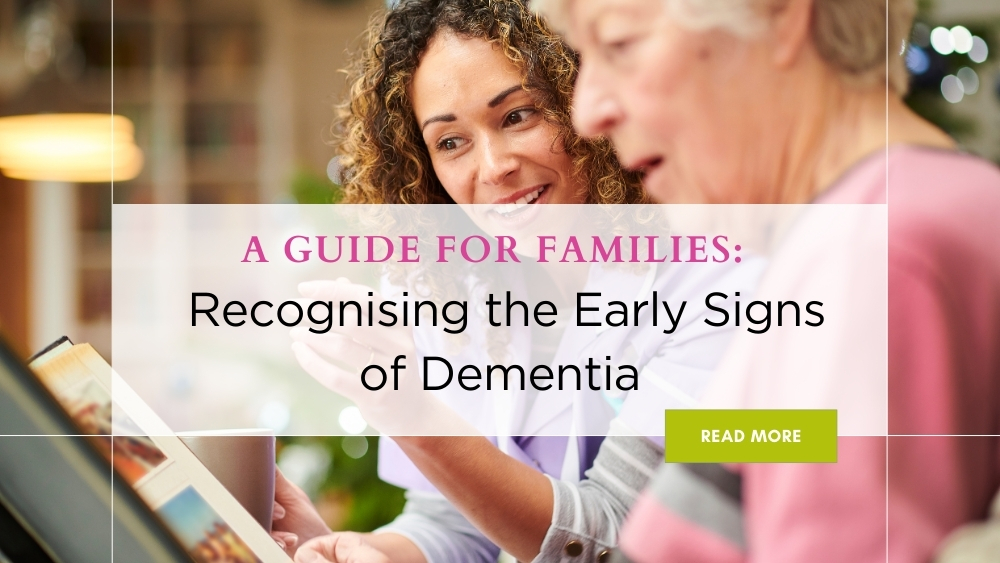Dementia is a condition that gradually affects memory, thinking, and everyday life. It doesn’t just impact your beloved—it also deeply affects the people closest to them. Spotting the early signs of dementia can make a big difference, helping families plan ahead and get the right support.
In the UK, more than 900,000 people are living with dementia, and this number is expected to rise. Understanding the first signs of dementia in the UK can lead to early intervention, offering better quality of life and care. In this guide, we’ll walk through the common warning signs to watch for.
Understanding Memory Changes: The First Red Flag
Occasional forgetfulness is normal, but when memory loss affects daily life, it could be a sign of dementia. If someone frequently forgets important details, repeats questions, or struggles with tasks like managing finances, it’s important to seek medical advice.
Normal Aging vs. Dementia
It’s natural to forget things occasionally, like where you put your keys or someone’s name. However, dementia-related memory loss goes beyond that. If someone frequently forgets important information, struggles to remember recent conversations, or repeats the same questions, it could be a cause for concern.
Daily Impact
Memory issues can make everyday tasks much harder. Some common things families notice include:
- Forgetting appointments or missing important events
- Repeating the same stories multiple times
- Struggling to manage household bills or finances
When memory problems begin to disrupt daily life, it may be time to seek medical advice.

Communication and Language Changes
As dementia progresses, communication becomes more challenging. Family members may struggle to find the right words, repeat phrases, or lose track of conversations. Written communication can also be affected, with difficulties in structuring sentences, spelling, and understanding instructions. These changes can make both speaking and reading more difficult.
Verbal Communication
Family members with early dementia may occasionally find it harder to express themselves This can include:
- Struggling to find the right words to use in a conversation
- Repeating the same phrases over and over
- Losing track of a conversation or feeling confused mid-sentence
Written Communication
Dementia can also influence the ability to write and read. Changes might include:
- Struggling to structure sentences or experiencing spelling difficulties
- Finding it challenging to understand written instructions
- Losing interest in reading due to difficulties following the text
Changes in Mood and Behavior
In the early stages of dementia, mood and behavior can change significantly. Loved ones may feel anxious, irritable, or withdrawn, and may experience mood swings or signs of depression. Socially, they may lose interest in activities, avoid gatherings, or display unusual behaviors like increased suspicion or frustration.
Emotional Changes
In the early stages of dementia, loved ones may experience changes in mood, such as:
- Feeling anxious or overwhelmed, even in familiar situations
- Increased irritability or unexpected mood swings
- Signs of depression or withdrawal from social interactions
Social and Personality Changes
Dementia can also bring changes to social habits and personality. You may notice:
- Reduced interest in hobbies or social activities
- Becoming more withdrawn or avoiding social gatherings
- Uncharacteristic behaviour changes, such as increased suspicion or frustration
Cognitive Function Red Flags
Executive Function Changes
Dementia can affect problem-solving and decision-making, making everyday tasks a little challenging. Early signs may include:
- Difficulty planning or organising daily activities
- Struggling to follow steps in familiar tasks, such as cooking a meal
- Finding it harder to make decisions or solve simple problems
Time and Space Orientation
People with early dementia symptoms in the UK may struggle with:
- Confusion about dates, times, or even the changing seasons
- Becoming lost in once-familiar places
- Difficulty following directions or navigating familiar routes
Physical Signs and Symptoms
Movement and Coordination
Some loved ones may also experience physical changes, including:
- Unsteady walking or shuffling their feet
- Difficulty maintaining balance
- A higher risk of falls
Daily Tasks
Loved ones with early signs of dementia in men and early signs of dementia in women may start struggling with:
- Dressing and grooming routines
- Cooking or handling household chores
- Keeping up with personal hygiene habits

Support and Care Options
If you recognise any of these symptoms in a loved one, seeking professional help is crucial. There are various assessments and healthcare services available, including:
- Cognitive tests to assess memory and thinking
- Support from dementia specialists and healthcare teams
- Local dementia support services offering guidance and assistance
Live-in Care Benefits
For those needing extra support, live-in care is an excellent option. It provides:
- A familiar home environment reduces confusion and stress
- One-on-one assistance with daily routines and personal care
- A tailored approach to care that meets their needs
Understanding the Journey
Recognising the early signs of dementia in the UK can help families take action sooner. Early diagnosis and support can make a huge difference in managing the condition and maintaining quality of life.
Why Choose Live-in Care Angels
Get in Touch To learn more about our dementia live-incare services, call us at 0330 043 6436 or email info@liveincareangels.uk today.

